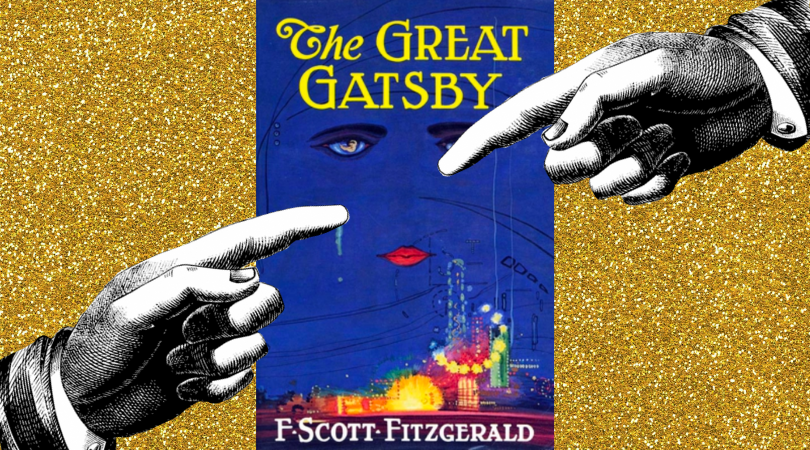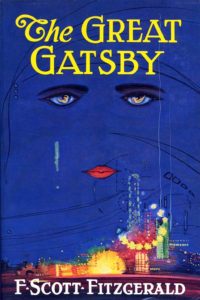
There are few things the literary community relishes more than the appearance of a polarizing high-profile book. Sure, any author about to release their baby into the wild will be hoping for unqualified praise from all corners, but what the lovers of literary criticism and book twitter aficionados amongst us are generally more interested in is seeing a title (intelligently) savaged and exalted in equal measure. It’s just more fun, dammit, and, ahem, furthermore, it tends to generate a more wide-ranging and interesting discussion around the title in question. With that in mind, welcome to a new series we’re calling Point/Counterpoint, in which we pit two wildly different reviews of the same book—one positive, one negative—against one another and let you decide which makes the stronger case.
We’ve got a special Classic Review edition of Point/Counterpoint for you this week, folks. Yes, in honor of its ninety-fourth publication anniversary, we’re taking you back to the Roaring Twenties to compare two wildly different reviews of F. Scott Fitzgerald’s green-lit magnum opus: The Great Gatsby.
Now considered by many to be the greatest of the Great American Novels, Fitzgerald’s tragic tale of wealth, decadence, obsessive love and dashed dreams initially sold in disappointing numbers and received pretty mixed reviews. By the time it began to experience a revival in the mid-1940s, Fitzgerald had already died thinking it a failure.
Now, you’ve probably already made up your mind about a book that’s sold 30 million copies, been adapted into various big budget films and stage shows, and been a staple of high school curricula for over half a century, but in case you’re still looking to be convinced, here are two of the very first takes.
*

So we beat on, boats against the current, borne back ceaselessly into the past.
“F. Scott Fitzgerald, who won premature fame in 1920 as the author of This Side of Paradise, a book that first turned into literary material the flapper of wealthy parents and of social position, whose principal lack was inhibitions, has in The Great Gatsby written a remarkable study of today. It is a novel not to be neglected by those who follow the trend of fiction.
…
“But it is for no such ordinary denouement that Mr. Fitzgerald tells his tale. Instead, he builds up a tense situation in which Daisy has the chance to choose Gatsby, with his doubtful antecedents and mysterious present connections, or to be as false as it has ever fallen to the lot of woman to be. She took the meaner way, the safe way, and plotted with her husband to save herself from smirch while letting Gatsby in for the worst that could befall him.
Character could not be more skillfully revealed than it is here. Buchanan and his wife, secure, but beneath contempt, standing shoulder to shoulder in the crisis, is a sad picture. ‘It was all very careless and confused. They were careless people, Tom and Daisy—they smashed up things and creatures and then retreated back to their money, or their vast carelessness, or whatever it was that kept them together, and let other people clean up the mess they had made.’
The story is powerful as much for what is suggested as for what is told. It leaves the reader in a mood of chastened wonder, in which fact after fact, implication after implication is pondered over, weighed and measured. And when all are linked together, the weight of the story as a revelation of life and as a work of art becomes apparent. And it is very great. Mr. Fitzgerald has certainly arrived.”
–Lillian C. Ford, The Los Angeles Times, 1925
“Scott Fitzgerald’s new novel, The Great Gatsby is in form no more than a glorified anecdote, and not too probable at that. The scene is the Long Island that hangs precariously on the edges of the New York City trash dumps—the Long Island of the gandy villas and bawdy house parties. The theme is the old one of a romantic and preposterous love—the ancient fidelis ad urnum motif reduced to a macabre humor. The principal personage is a bounder typical of those parts—a fellow who seems to know every one and yet remains unknown to all—a young man with a great deal of mysterious money, the tastes of a movie actor and, under it all, the simple sentimentality of a somewhat sclerotic fat woman.
…
“This story is obviously unimportant and, though, as I shall show, it has its place in the Fitzgerald canon, it is certainly not to be put on the same shelf with, say, This Side of Paradise. What ails it, fundamentally, is the plain fact that it is simply a story—that Fitzgerald seems to be far more interested in maintaining its suspense than in getting under the skins of its people. It is not that they are false: it is that they are taken too much for granted. Only Gatsby himself genuinely lives and breathes. The rest are mere marionettes—often astonishingly lifelike, but nevertheless not quite alive.”
–H.L. Mencken, The Chicago Tribune, 1925

